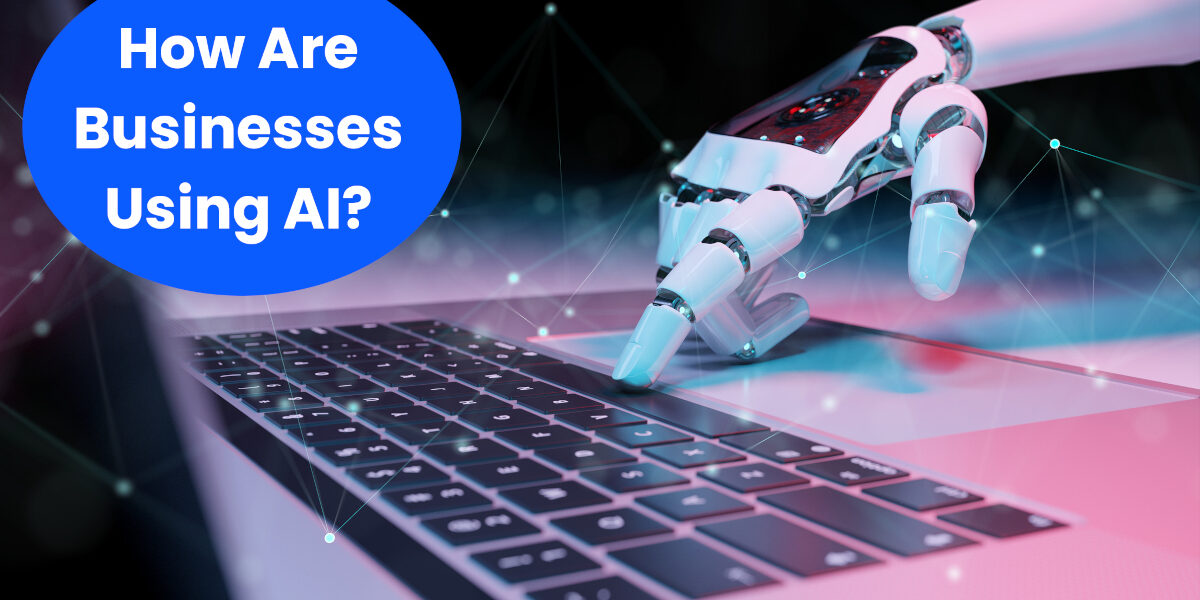Artificial intelligence (AI) technology abound, an increasing number of companies across all industries and business sectors are pursuing Digital Transformation projects in an effort to make the most of this emerging technology. AI remains somewhat novel, prompting many business leaders to wonder, “How can I implement AI business solutions for my company?” Fortunately, there are a number of different industry-specific AI business solutions to consider, presenting many opportunities to gain a competitive advantage.
Implementing AI Business Solutions That Generate a Healthy ROI
When implementing a new technology, you want to avoid a scenario where you’re deploying AI just for the sake of saying “we use AI.” Your Digital Transformation project — especially those involving artificial intelligence — ought to address a particular challenge or pain point. With this Digital Transformation strategy, you’ll be maximizing your chances of seeing success and a healthy ROI. Simultaneously, you’ll minimize the chances of becoming one of the 7 in 10 that experiences a failed Digital Transformation project.
 The most successful AI implementations are those that are engineered around a challenge or shortcoming. More novel AI implementations may generate some interest out of the starting gate, but they tend to lack the ability to generate a strong ROI, especially in the long term.
The most successful AI implementations are those that are engineered around a challenge or shortcoming. More novel AI implementations may generate some interest out of the starting gate, but they tend to lack the ability to generate a strong ROI, especially in the long term.
The AI business solutions that see the highest success rates are fully customized industry specific technology that is developed using a problem → solution strategy. In short, the AI business solution is truly a solution that targets a pain point or challenge. It’s also prudent to involve end users in the development and testing phases of your AI development project. These individuals will have unique insights that may otherwise prove elusive.
Machine learning technology is often integrated into these artificial intelligence business solutions since it gives you the ability to continually improve your AI platform. The end result is an AI deployment that evolves and changes in a manner that allows this technology to keep pace with your organization’s unique needs.
Examples of AI Business Solutions
When implementing AI business solutions, you must consider the end user and industry-specific requirements. Here is a look at a few ways in which different companies are deploying AI technology.
-
-
- Data Visualization – AI can be used to generate data visualizations that make it much easier to leverage data in order to achieve actionable insights.
- Chat Capabilities – Companies in all business spaces are using AI to answer questions in chat bot interfaces. These AI implementations can be used for customer support applications, decision support and user engagement, among other things.
- Content Creation and Editing – Text, images and graphics can be generated or modified using artificial intelligence technology.
- QA Testing – AI is very effective for use in quality assurance testing, which is required in a variety of different industries and business verticals.
- Recruiting and Job Candidate Screening – AI technology can be used to identify ideal candidates, aiding HR staff in their recruiting and hiring efforts.
- Security and Fraud – AI technology can be deployed to make for smart cybersecurity capabilities. For instance, the banking and financial business space is increasingly turning to AI to identify likely cases of fraud and theft.
-
These and many other AI business solutions can be customized to suit an industry’s unique needs. It’s a matter of identifying dynamic processes and conditions that are in need of improvement, such as better efficiency, increased productivity or greater user-friendliness. Identifying KPIs for your AI deployment will help you to evaluate the efficacy of your Digital Transformation project.
Choosing the Right Digital Transformation Development Partner
The AI business solutions with the highest success rates tend to be industry-specific AI implementations that are developed using a problem → solution sort of approach. This underscores the importance of creating a well-considered software requirements document (SRD) and business requirements document (BRD) — docs that will guide the Digital Transformation project from start to finish, thereby reducing the inherent risks associated with this sort of project. That’s the strategy that we utilize here at 7T, with each company’s AI deployment developed based upon the client’s unique needs and requirements.
At 7T, we’re guided by the approach of “Digital Transformation Driven by Business Strategy.” As such, the 7T development team works with company leaders who are seeking to solve problems and drive ROI through Digital Transformation and innovative technologies such as AI.
7T has offices in Dallas, Houston and Austin, but our clientele spans the globe. If you’re ready to discuss your Digital Transformation development project, contact 7T today.








